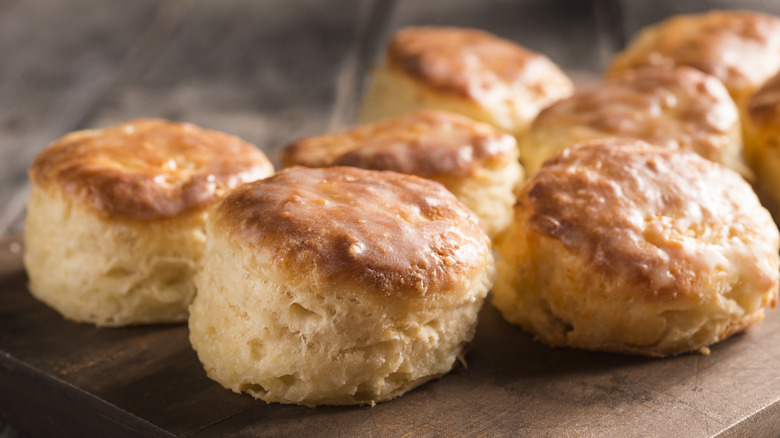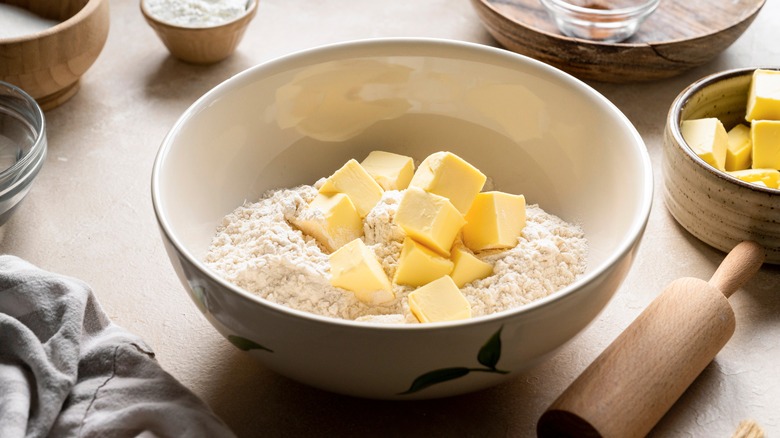Think Twice Before Substituting Butter With Oil When Making Biscuits
Imagine pulling a tray of freshly baked biscuits from the oven. With anticipation, you break open a warm biscuit, expecting to find flaky layers with a comforting, rich flavor you've always cherished. But instead, you're met with a dense, flat biscuit that lacks the familiar buttery taste and breadlike texture. So, what went wrong?
The answer lies in the choice of fat used in the baking process, specifically if you had substituted the recipe's call for cold butter with a neutral oil. This situation underscores the importance of using the right fat in baking biscuits, especially when considering substitutes for butter.
As a semi-solid fat, butter contributes to the rise and flakiness of biscuits in ways liquid oil can't replicate. But what makes butter so unique? It all comes down to baking science. In the oven, the butter melts, releasing water that evaporates into steam. When the steam tries to escape the dough, it forms layers of air pockets instead, resulting in the flakiness biscuits are known for. In addition, the milk proteins and sugars in butter undergo the Maillard reaction during baking, resulting in golden-brown biscuits with a rich, somewhat caramelized, and nutty flavor.
In a pinch, substitute butter with another semi-solid fat
Oil, a liquid fat at room temperature, can't create air pockets of steam. The resulting biscuits are often flatter, denser, and less flaky in texture. Without undergoing the Maillard reaction, biscuits made with oil also lack the richness and allure of butter-baked biscuits. Of course, you can still use oil to make biscuits in a pinch, but do think twice if you don't want to sacrifice too much flavor and texture.
If you're looking for dairy-free alternatives, semi-solid fats like vegan butter, coconut oil, and plant-based shortening or margarine are worth considering. These options closely mimic the physical characteristics of butter and can provide a better substitution than liquid oil while helping you achieve that flaky consistency. And if you decide to make the switch, it's pretty simple — you can use a 1:1 ratio of margarine or shortening by weight as a substitute for butter.

